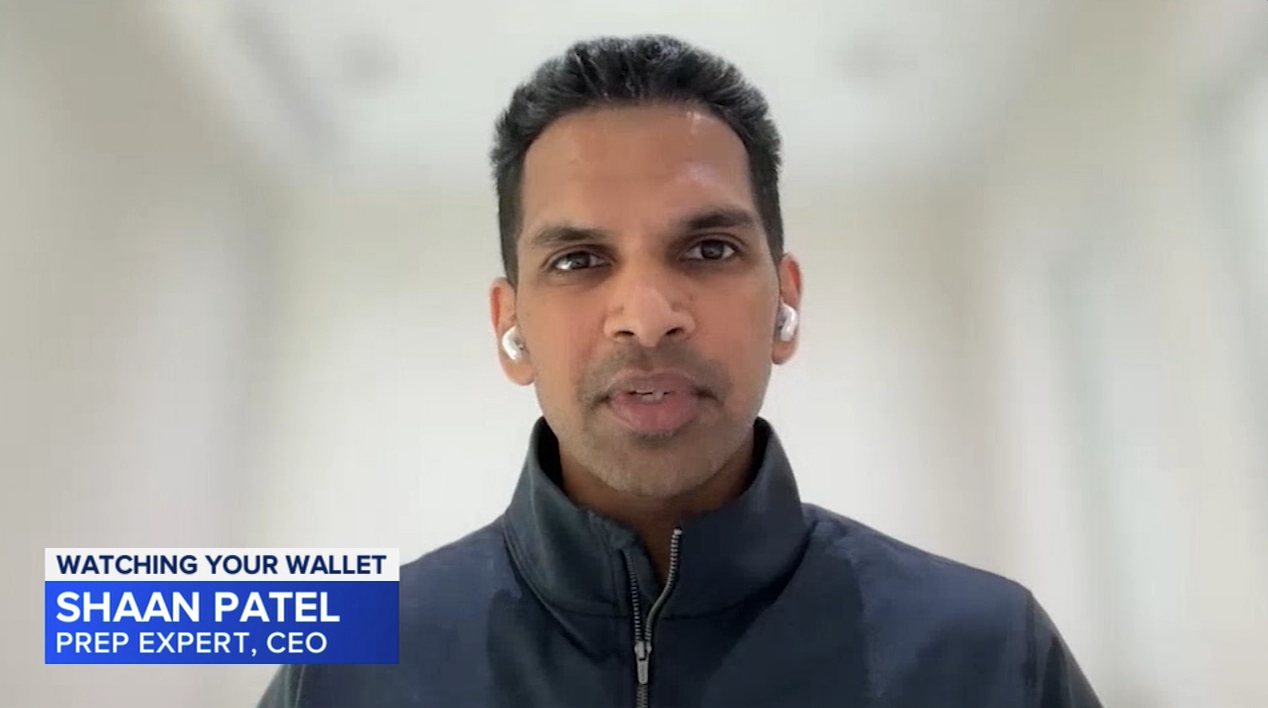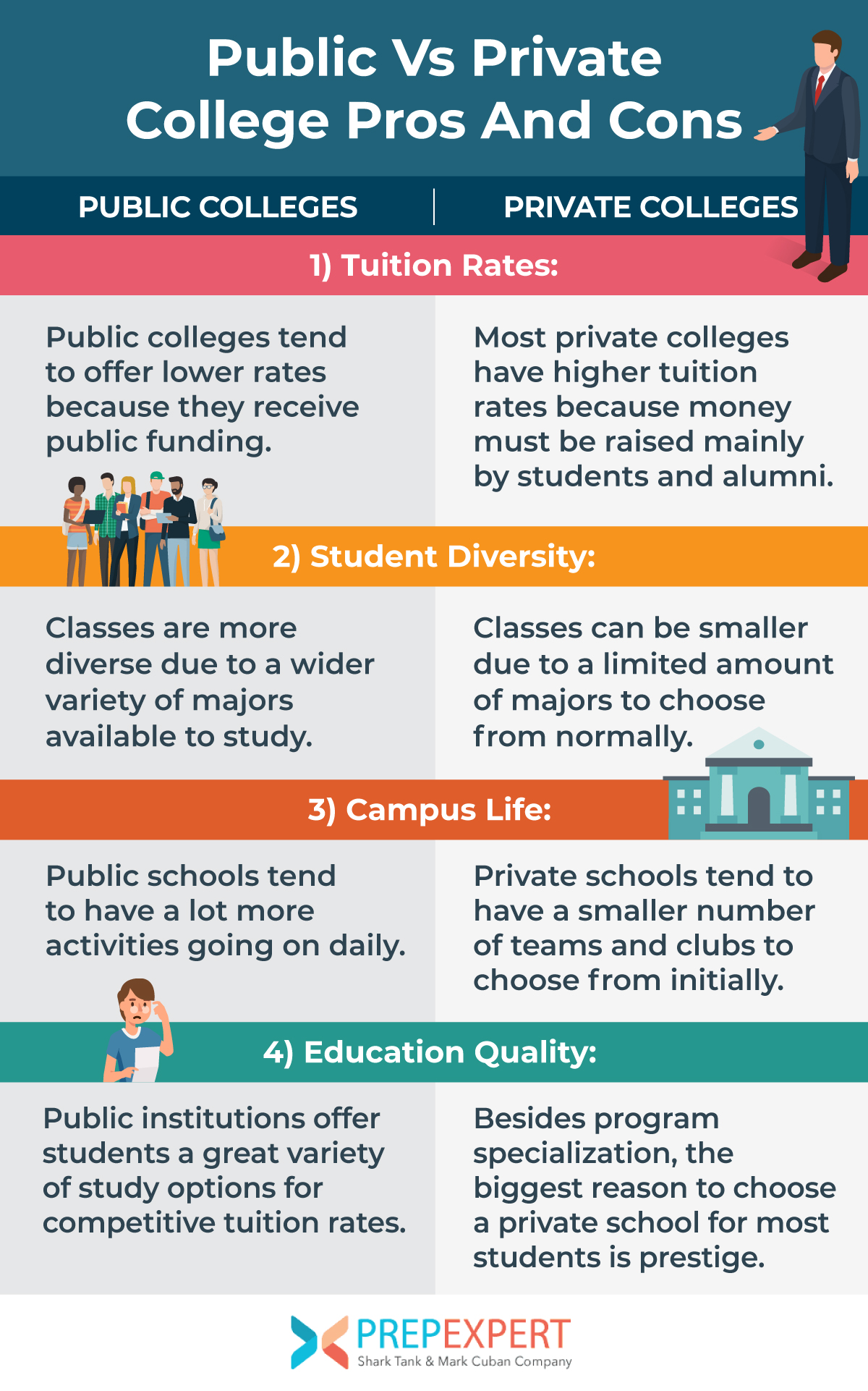Public Vs Private College Pros And Cons
Choosing between a public and private college doesn’t always boil down to a price; there are various factors to consider when making that final decision.
To help make your choice easier, consider these public vs private college pros and cons.
Don’t forget to see how we can help you out with either the SAT or the ACT today.
Tuition Rates
Let’s first look at how public vs private colleges handle tuition costs:
Public Colleges – Public colleges tend to offer lower rates to students. Why? Because they receive public funding, mostly from their home states via tax monies. Moreover, these schools also offer students both scholarships and financial aid assistance.
Private Colleges – Most private colleges have higher tuition rates across the board. The main reason being that, because they’re private, these schools do not receive any public funding aid. Every penny must be raised by students and alumni via tuition and gifts.
However, many of these schools often provide more opportunities for scholarships and financial aid than public counterparts. So when choosing between the two options, research how much a school offers in aid, despite the initial tuition price.
Student Diversity
Let’s now look at how these schools tackle diversity when selecting freshman classes:
Public Colleges – These schools normally pull in diverse student body classes for a couple of reasons:
- First, public colleges normally have a wider selection of majors available for study.
- Second, because they’re less expensive, students from broader economic circumstances can come together on a single campus.
Private Colleges – Private institutions also tend to attract students from diverse backgrounds but more so in terms of geography. As far as majors go, private colleges tend to limit their areas of expertise, so the programs offered may be fewer in number but they’ll be sharper in quality. Students may come from different places but can bond together easier because of common majors.
Campus Life
Now’s a good moment to look at how campus life itself varies between schools:
Public Colleges – Public schools tend to have a lot more activities going on daily. The biggest reasons being: More available students, More available facilities and organizations. Public schools will offer so many different clubs and opportunities for student involvement.
Every major will likely have a corresponding club. There will be a variety of sponsored sports teams and clubs to watch. In short, public schools will have a lot more hustle and bustle on a daily basis. If you thrive on energy and lots of options to spend your free time with, then a public college will provide that easily.
Private Colleges – Private schools tend to have a smaller number of teams and clubs to choose from initially. Because of their greater focus on academic specialization, private schools place less emphasis on extracurriculars. However, what is available is usually fairly diverse.
More importantly, these schools will usually let students create their own organizations catering to specific interests. As far as academics go, private colleges normally offer smaller student-to-instructor ratios and specialization. If you need more attention and catering to your classes, then a private college will be more appealing to you.
Education Quality
Let’s take one last look at the quality of education you’ll receive from both options generally:
Public Colleges – Public institutions offer students a great variety of study options for competitive tuition rates. Because these schools receive government funding and have enough size to offer diverse fields of study, you’ll normally get the most value per dollar going to a public school.
However, you have to also research factors like faculty quality and overall prestige. If the school you’re looking at isn’t known for having the best in their fields teaching students, then you should pause before committing.
Private Colleges – Besides precise specialization, the biggest reason to choose a private school for most students is prestige. If you can get into a school that accepts very few students, then you give yourself a certain cultural cache that doesn’t hurt on resumes after graduation.
Also, many of these schools are among the elite academically, so you aren’t trading on name alone. These schools often attract the most talented staff and research opportunities.
For more test strategy, college admissions, and scholarship application tips sign up for our FREE class happening right now!
Written by Dr. Shaan Patel MD MBA
Prep Expert Founder & CEO
Shark Tank Winner, Perfect SAT Scorer, Dermatologist, & #1 Bestselling AuthorMore from Dr. Shaan Patel MD MBA

The Student Loan Rules Just Changed—And Most Families Aren’t Ready
By Dr. Shaan Patel, CEO & Founder of Prep Expert® Student loans have always been complicated. But starting in…

Confidence Is the Hidden Score Booster No One Talks About
Most students think SAT® and ACT® success comes down to knowing more math formulas or grammar rules. That’s only half…

What Kind of SAT Score Gives You a Good Chance at a Scholarship in 2026?
As more colleges remain test optional, students often assume standardized test scores no longer matter for scholarships– but that’s a…
